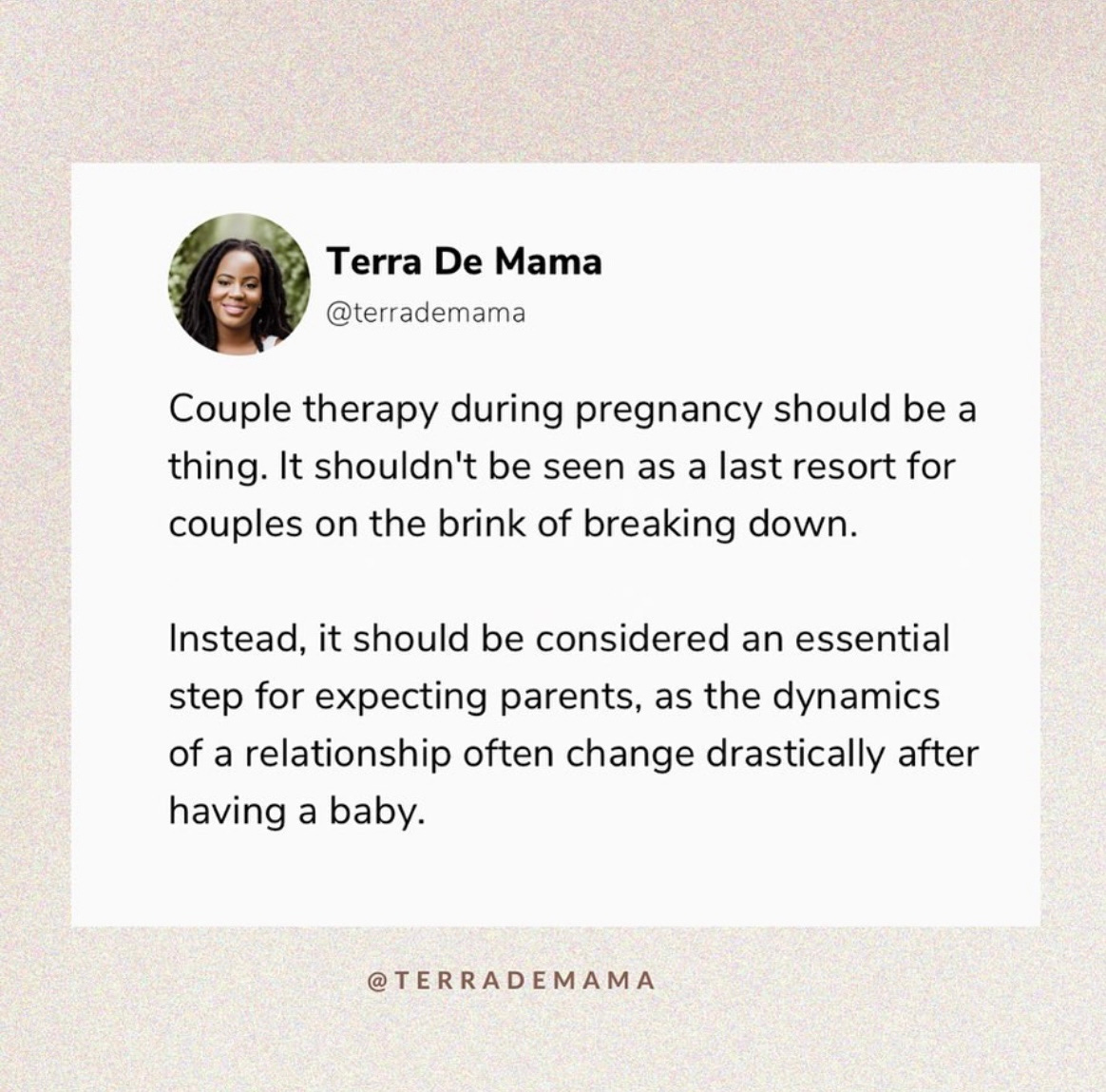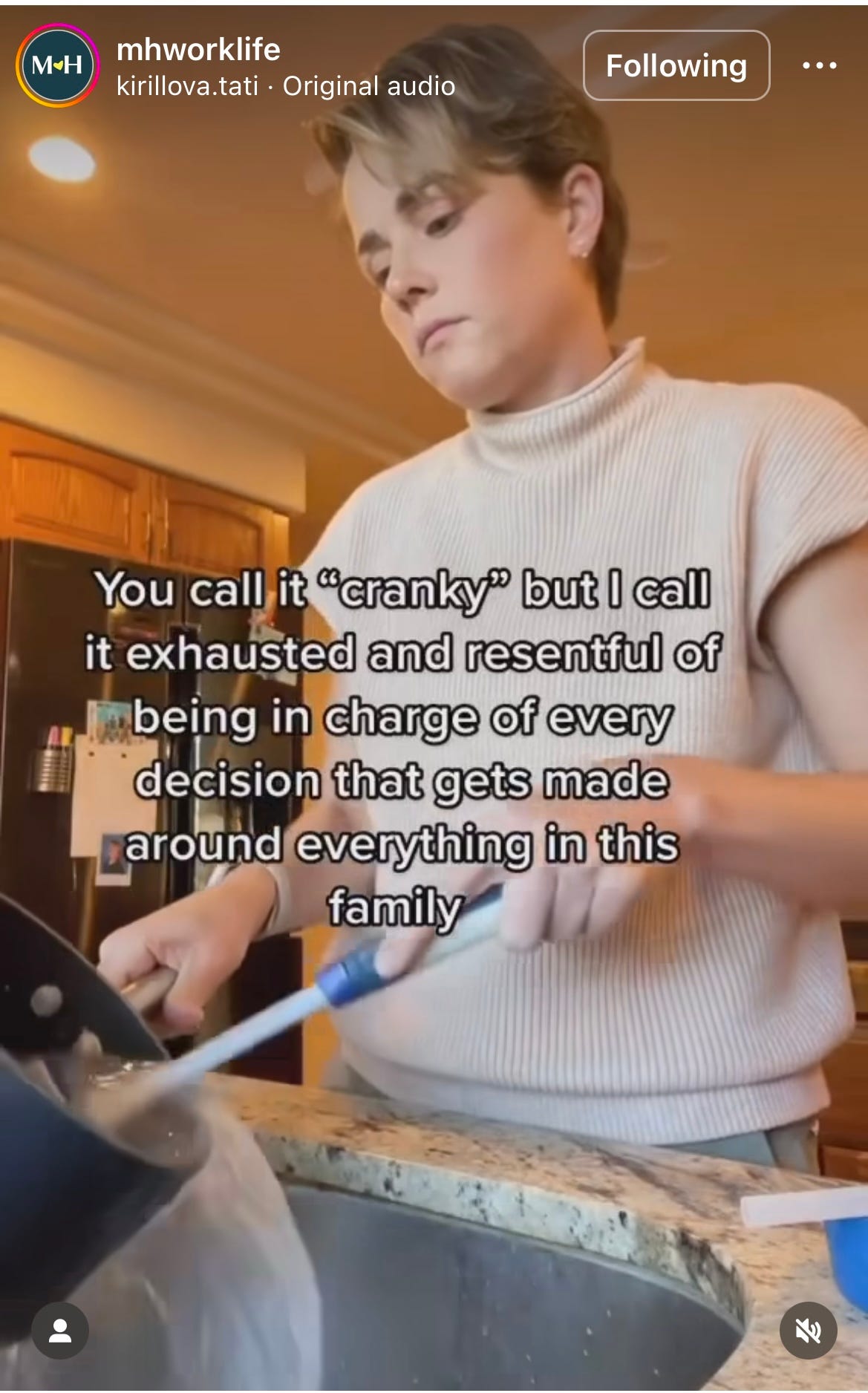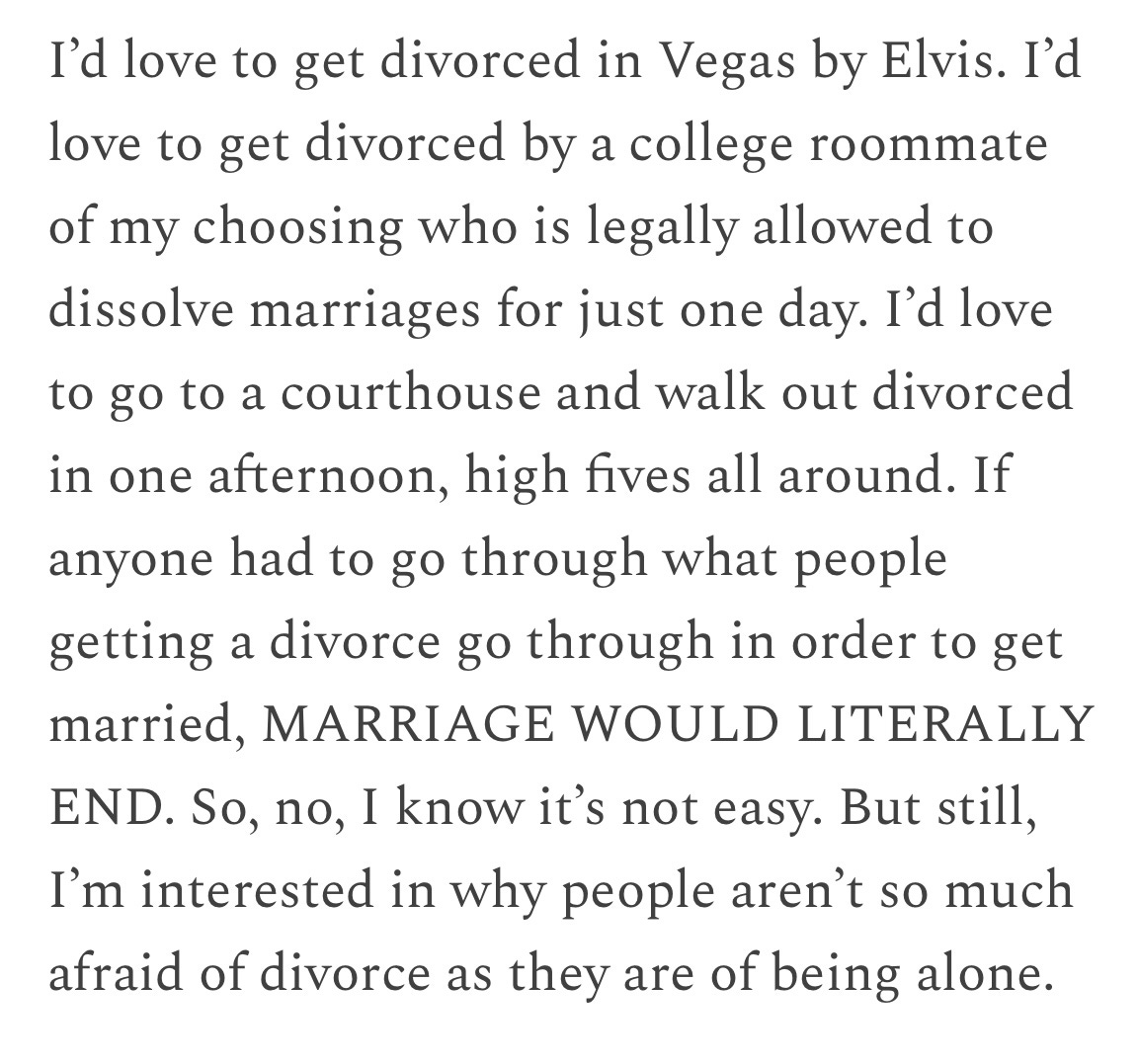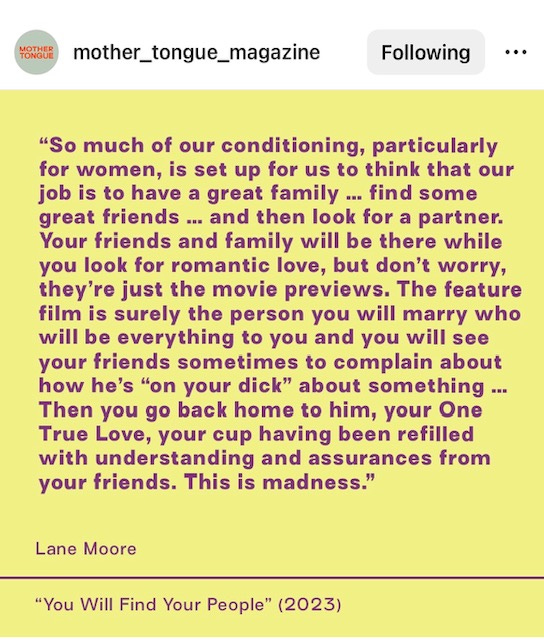Several months back, I wrote a post called “Is Marriage Bad for Mothers?” When I was discussing the post with my brother-in-law, he said, “you should also do a post called ‘Is Motherhood Bad for Marriage?’” Hmmm, that’s interesting, I thought. Six months later, here it is.
Despite the fact that the nuclear family is the default for how our society functions, bringing children into a marriage can be hugely destabilizing for the couple. It upends everything. What was once a comfortable partnership, a cocoon of love, becomes a workplace, a location of endless labor. It also tends to push heterosexual couples into gendered roles that perpetuate patriarchal structures and leave mom being the default parent.
Now, creating people out of nothing but your love can also be a hugely connecting activity. In fact, the first few weeks an infant’s life can bind you and your partner together in ways you couldn’t fathom as you stare in adoration at the tiny eyelashes and soft cheeks that you made, and listen to their coos and experience their first smile. There is nothing like someone loving your child with as much adoration as you do. But after a few months, that high will wear off due to lack of sleep and constant feedings and sheer exhaustion and the needs that never ever stop.
And then eventually, your husband may come at you with a certain look in his eye. He wants to reestablish the sexual connection that was a pivotal part of the relationship to begin with. But rare is the new mother who is ready to reestablish a sexual relationship within the first few months of childbirth. I’ve been writing about what might emerge if we allowed sex to be off the table during matresence so that the mother could reclaim ownership of their body during a time when it is constantly on loan to another being (the baby). (You can read those posts here and here and here). Sadly, we still expect new mothers to be sexually available to their husbands as part of their martial duty and this dynamic of having your husband come to you with yet more needs and having to refuse him (which is more emotional labor) can become very troublesome (and for some, triggering). Because we still think that marriage should fulfill all our needs, when mothers are tapped out due to the needs of their children, men feel deprived and bitter, and women feel resentful and spent.
Not all marriages fall into this trap. But motherhood ladens you with other people’s needs, and the expectation that you will just take care of everything. The meals, the planning, new clothes that fit, something fun to do to break up the monotony of family life, and yes, the need for the male in the relationship to feel desired and connected via sex.
We have positioned marriage as the ultimate love story and set coupledom up as the relationship that should fulfill all of our needs: financial, emotional, sexual, etc. But that isn’t how marriage originated. Marriage was first and foremost an economic institution. It was an exchange of property, a female being passed off from father to husband, so that now she would serve a new household, and hopefully produce children, who were also drafted into this labor, and all of this work kept the world running. Nowhere in there was a requirement of love. Love was, in fact, a threat to marriage because it made it less stable (if you are interested in all this historical information, read Stephanie Coontz’s seminal Marriage, a History).
Marriage has now evolved into something that men and women choose of their own volition, often because they are in love and want to build a family. But raising children and being in love do not go hand in hand.
Raising children is work. Thus you and your husband become co-workers instead of lovers. Now, it didn’t used to be this way. For a time, women were housewives and care of the children was solely their domain. Everyone’s roles were clearly defined for a time. But now, both parents are expected to care for the children and the house, in some form or fashion. This work never stops. It is 24-7. Even if you work full time, you come home and there is more work. And unfortunately, most of that work is being done by women.
Ruby Warrington, who wrote the book Women Without Kids, discusses how she chose her marriage over having children. That neither of she nor her husband felt confident they could keep pursuing their careers and each other in the same way if they added children into the mix (they were right!). She also acknowledges that by not becoming a mom, she never became the traditional “wife” who cooks and cleans and tends the children. And that this helped their marriage stay intact.
Now, some might say that motherhood saves marriage because people are less willing to leave when there are children involved. A recent UK study of 2,000 couples found that 50% of them were only staying married for the kids. But how many of those people are just suffering, rather than redefining their terms? I think there is bravery is admitting to each other that the marriage is no longer a love partnership, but is solely a relationship built on joint commitment to raising the kids. There are couples out there like this, who co-habit but sleep separately, but we don’t hear about it because there is no room for these kinds of non-traditional structures in our society, too much shame in not living up to the lie, that motherhood and marriage are not at odds with each other.
We should be up front about the fact that having children changes the tenor of our marriages. Maybe not forever. But at least for a time. Instead, I feel like most messaging we receive is that we can have it all - a happy marriage, children, a thriving career. That nothing has to give. But I don’t think that is true. Something always has to give. For some women, it is their career. For others, their marriage. For many women, both.
Motherhood didn’t used to be so all encompassing. There are statistics that report that mothers who work full time outside of the home today spend as much time with their children as stay-at-home moms did in the 70’s. You didn’t used to need to be on and available to your children at all hours the way modern American motherhood requires today. Consequently there is less space in our psyche for our husbands. “The automatic mothering women provide their male partners [is] the emotional sustenance that forms the invisible mortar of many heterosexual relationships,” Gabor Mate writes. But with intensive mothering, we have less bandwidth to mother our husbands and they feel that lack of care as rejection. Where it is really just a lack of resources. Amanda Montei references this in her forthcoming book Touched Out in a chapter called Refusal: “I had to pull away from my husband, to love my kids the way I wanted to and the way I was told to.”
Since the pandemic, there has been a lot of discourse about how to get more support for mothers at home, namely from their husbands. Jo Piazza wrote about this development in a recent article for Bustle called “The HR-ification of Marriage.” About how couples are realizing that their family is an organization that needs both people involved in order for it to run smoothly. She mentions Eve Rodsky’s Fair Play, a book that continues to make its rounds for couples who need help figuring out a more sustainable dynamic than everything just defaulting to mom.1 Piazza recounts couples sitting down once a week to discuss problems, purchases, and schedules, the use of Slack as a communication tool between partners. The article acknowledges the very unsexy fact that parenting and running a household cannot be fueled by love. It is fueled by labor. And it should not all fall on one person’s shoulders, no matter who is the primary breadwinner.
But the story we tell of marriage is devoid of any recognition that marriage is also a business arrangement. We are sold the story of date nights, and keeping the spark alive, and if you just work hard enough at it, your marriage will be just fine! But aren’t we tired of working? Aren’t we tired of carrying responsibility of all the things? When we place such high expectations on marriage, when it understandably suffers during those years that the children are young, then we think there is something wrong with us. That we are failing. Instead of acknowledging that very rare is the marriage that is thriving during the time when kids are ages 1-7.
Unfortunately, suffering quietly in marriage seems to be a very common coping mechanism. None other than Michelle Obama said she couldn’t stand her husband for ten years, but that ultimately, it was worth it to stick it out. (I wrote my thoughts about this comment here). I find this logic so befuddling. How is suffering in an institution for ten years a win? But we do not make leaving marriage easy. Despite the ease with which we can enter into these relationships, extracting ourselves is a task that can feel Hurculean.
From Kimberly Harrington’s Substack:
Marriage is still synonymous with never ending love. I mean, I get it, it is right there in the vows. But sometimes this obsession seems strange. I was watching Love Is Blind the other day, to see what all the fuss is about since I somehow missed it in the early days of the pandemic. And I could only stomach one season. It has such a faulty premise, as if shared values and having stuff to talk about is enough to sustain a long term relationship. (We all know that the true test of a relationship is: How does he react to his mother? Can you stand the way he chews? How do you handle conflict?) But these newly engaged couples look at each other with stars in their eyes. One said: “Now we get to be together forever!”
And I know this is the bill of goods sold to us - that’s what marriage is for, to be done searching for your person, and finally settle down for good! But it also seems, from where I sit as a getting-divorced woman, somewhat stifling.
I think we, as a society, are on the cusp of upending the institution of marriage. Fewer and fewer adults are marrying. People are discovering new ways to be married or be in committed relationships with the rise in polyamory and open marriages. There is a steep decline in religiosity. There is interest in mommunes and a desire to value the other relationships in our lives other than romantic partners. This is all long over due and probably in reaction to the pandemic when we became siloed into our nuclear families and felt stuck, or attempted to pod up with others and felt the blessed experience of true communal care.
I’m curious to see where we end up. Because, as Amy Shearn wrote in that New York Times Op-Ed that I still think about all the time: “Married heterosexual motherhood is a game no one wins.” I wish this were not true but given our entrenched gender roles and the lack of societal support, it’s where we are today. I hope more women feel empowered, like Ruby, to forgo motherhood to prioritize themselves and preserve their marriages. I hope more women will open up about struggles in their marriage and how hard it can be to keep everything going. I hope married women who decide to embark upon motherhood will be prepared for the ways it will derail their marriage. And it doesn’t mean they are doing anything wrong.
FURTHER READING
What if friendship, not marriage was at the center of life? The Atlantic. Rhaina Cohen
Emotional Labor: The Invisible Work Shaping Our Lives and How to Reclaim Our Power. Rose Hackman.
You Could Make This Place Beautiful. Maggie Smith.
Marriage, a History: How Love Conquered Marriage. Stephanie Coontz.
If you don’t want to read the book, you can now watch a documentary, available on various streaming platforms.












I always love your posts - thanks for shining lights on these issues for mothers!
Thanks for sharing!